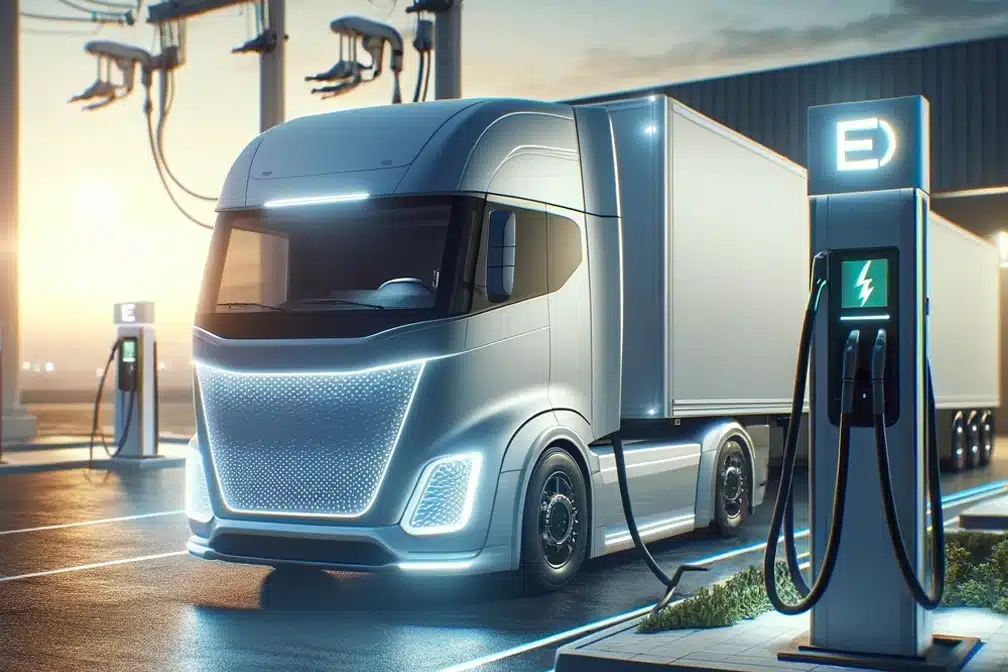April 2024 Truck and Warehouse Jobs shift, with trucking losing 300 jobs, and warehouses adding 7,600 jobs - highlighting industry volatility.
Continue Reading
May 17, 2024 11:28 pm

Electric Vehicles (EVs) are gradually taking center stage in the pursuit of cleaner, more sustainable transportation solutions. The trucking industry, vital to the U.S. economy, is no exception, with an increasing interest in electrification to reduce carbon footprints and improve sustainability. However, as fleets begin to consider this transition, they’re encountering a new hurdle: the complex landscape of EV charging payment systems.
The expansion of Electric Vehicle charging stations across the United States and Canada is notable. The numbers are continually rising to support the growing fleet of electric vehicles. However, this growth brings to light an underlying issue – the burgeoning number of payment systems. The EV charging infrastructure is highly fragmented, leading to significant payment compatibility challenges. According to ChargeHub CEO Simon Ouellette, there are over 64 Electric Vehicle charging networks in the U.S. Additionally, there are more than 100 across North America, each with its unique payment system. This diversity complicates the charging process for fleet operators, hindering the widespread adoption of EVs in commercial trucking.
To address these complexities, Electric Vehicle roaming hub ChargeHub has partnered with Comdata, a renowned payment processor and fleet fuel card provider. This collaboration aims to simplify the EV charging landscape for fleets. The partnership facilitates access to more than 20 charging networks for Comdata customers through ChargeHub’s PassportHub solution. This innovative service streamlines Electric Vehicle roaming and payment processes across multiple networks, enabling a more unified and efficient charging experience for fleet drivers.
For fleet managers, the ability to charge multiple vehicles easily and efficiently is paramount. Optimizing routes and minimizing downtime are critical to maintaining profitability and harnessing the full potential of electrified fleets. The partnership between ChargeHub and Comdata addresses these needs. It does so by offering a solution that supports the scaling of charging operations and ensures drivers can find and use charging stations without unnecessary complications.
John Donahue, Vice President of EV Product and GTM Strategy at Comdata’s parent company FLEETCOR, emphasizes the critical nature of the driver’s experience in the adoption of fleet EVs. Unlike the uniform experience of fueling internal combustion engine vehicles, Electric Vehicle charging involves navigating a maze of charging types, speeds, and payment methods. The inefficiencies and poor user experience resulting from this complexity can significantly impact fleet operators’ sustainability goals.
Heavy-duty trucking is at the forefront of the challenge to achieve net-zero emissions. With the transportation sector responsible for a significant portion of U.S. greenhouse gas emissions, targeting the relatively small percentage of medium- and heavy-duty vehicles on the road could have a substantial impact on overall emission reduction efforts. However, the current Electric Vehicle charging infrastructure is not fully equipped to accommodate the specific needs of large trucks, such as high-speed charging requirements and sufficient space for maneuvering with trailers.
The solution proposed by Comdata and ChargeHub is technology-agnostic, designed to adapt to the evolving needs of the trucking industry as the infrastructure for charging heavy-duty trucks develops. This approach not only supports the current transition to electric passenger vehicles but also lays the groundwork for extending these capabilities to medium- and heavy-duty transportation in the future.
The complexity of Electric Vehicle charging payment systems has emerged as a significant barrier. Strategic partnerships and innovative solutions like those between ChargeHub and Comdata are essential in simplifying this landscape, enabling fleets to embrace electric vehicles and progress towards their sustainability goals. With continued collaboration and technological advancement, the trucking industry can overcome these challenges, ensuring a smoother transition to a greener, more sustainable future.
April 2024 Truck and Warehouse Jobs shift, with trucking losing 300 jobs, and warehouses adding 7,600 jobs - highlighting industry volatility.
Continue ReadingBritish Columbia is taking a stand against commercial truck drivers who compromise the safety of the province's highways by hitting overpasses. This move is not just about
Continue ReadingAs we move through 2024, the trucking industry faces an unprecedented challenge with cargo theft reaching new heights. Experts forecast this year to mark a continuation of
Continue ReadingConnell High School in Connell, Washington, has formally petitioned the FMCSA to allow students under 18 to obtain commercial learner's
Continue ReadingThe U.S. government is increasing scrutiny on Chinese companies that are potentially dodging tariffs by manufacturing Chinese EVs (electric vehicles)
Continue ReadingIn a legal battle that could reshape the trucking industry, 24 Republican states join to bring a lawsuit against the
Continue ReadingThe 2024 CVSA International Roadcheck is scheduled for May 14-16. Over 72 hours, inspectors across the US will conduct nearly
Continue ReadingThe EPA's latest emission standards detailed in a final rule issued on March 29 are sparking vigorous debate within the
Continue ReadingOOIDA • ATA • DOT • NASTC • WOMEN IN TRUCKING • NPTC • DRIVER RESOURCES • TDN STAFF • ARCHIVES • SITEMAP